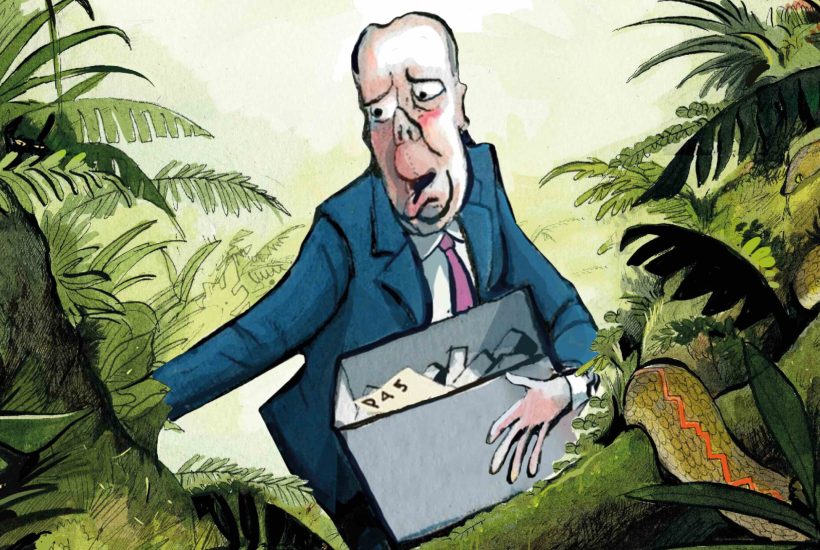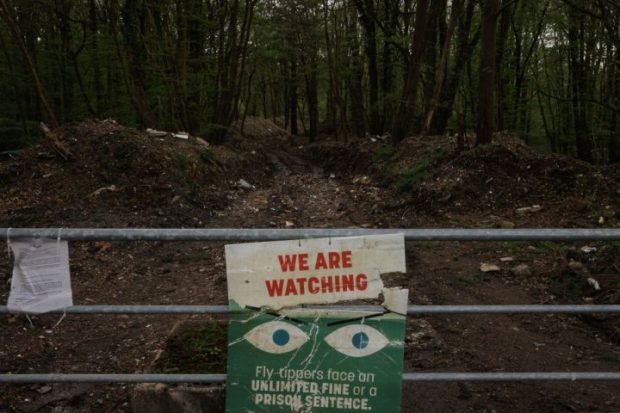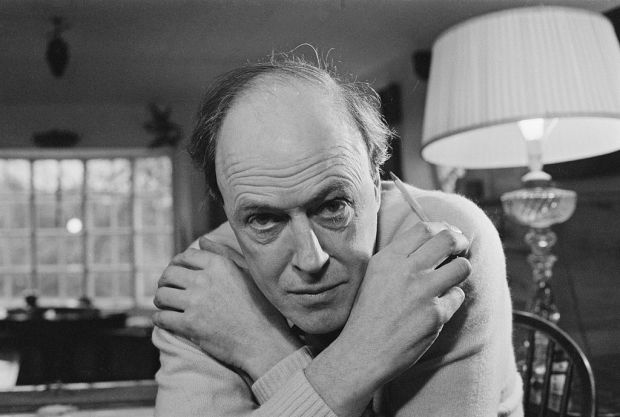‘Standing in my kitchen in Suffolk after a quiet New Year’s Eve, I scanned my newspaper for clues as to what might be lurking around the corner.’
So run the opening words of yesterday’s first extract of Matt Hancock’s Pandemic Diaries: The Inside Story of Britain’s Battle Against Covid. 1 January. New Year’s Day. And our hero – modest, unassuming, but eternally vigilant, eyes always scanning the horizon – is on duty, even when most of us are nursing a foggy head.
Of course, we know now what this man of destiny didn’t know then: that the ‘news-in-brief story about a mystery pneumonia outbreak in China’ that catches his eye is the harbinger of the vast global story that is to change all of our lives. Yet here he was, if we’re to believe this, that very day: noticing the tiny news item that turned out to be a message from his bleak and momentous future.
But, of course, he didn’t. And it’s a mild insult to all of our intelligence to be asked to imagine that he did.
It is a fundamentally dishonest and trivial way to present a serious account of events
Who keeps a note of a news-in-brief item, unless it’s an especially rude or funny one? Also, nobody in any diary in the history of diaries has written a phrase like ‘standing in my kitchen in Suffolk after a quiet New Year’s Eve’.
So Matt Hancock’s book may be any number of things – a grotesque cash-in, a litany of self-justification and special pleading, a valuable insider account, a triumphant vindication of a much-maligned man doing his best in difficult circumstances, or a muddled mixture of all these things. Take your pick: most people already will have. Firm opinions will have been formed on the matter long before anybody has had the chance to read the extract, let alone had the pleasant surprise of finding Mr Hancock’s book in their Christmas stocking.
The one thing that this book is not, though, is what the title proclaims it. It is, instead, an example of a particularly shabby new non-fictional form: the ‘diary’ written in retrospect. Even by the admission of his publisher, the book that Mr Hancock has cooked up with the political journalist Isabel Oakeshott has ‘(drawn) on a wealth of never-before-seen material, including official records, his notes at the time and communications with all the key players in Britain’s Covid-19 story’ – which is to say it’s not a diary at all. It’s a memoir in diary form.
Why does that matter? Because presenting the story as a diary is a literary device – and, especially in the case of a political memoir, it’s a rhetorical one. It affects to give the document the immediacy and authenticity of a real-time account rather than a hazy and self-serving after-the-event write up, with all the hindsight that brings.
It is a fundamentally dishonest and trivial way to present a serious account of events. That’s okay for ‘autofiction’, which is a literary rather than a historical form. It’s not appropriate for something that’s purporting to be a contribution to historical truth. The model for this ersatz form, I suspect, is not from politics but showbiz: Piers Morgan’s very enjoyable, gossipy, successful and entirely unreliable ‘diaries’, cobbled together long after the event, of his time as a newspaper editor and later telly presenter.
Diaries – real diaries, kept contemporaneously and published as close to unexpurgated as is possible within decency and the law – are a historical document past price. Pepys is Pepys because when he recorded the great fire of London, he didn’t know he was recording the Great Fire of London. And his personality – vivacious, lecherous, chaotic, priggish here and companionable there – comes through as it was, not as he wished it to be.
Kenneth Williams, Joe Orton, even the anonymous author of the logorrheic diaries found in a skip and edited by my old friend Alexander Masters as A Life Discarded: the quick of life is in these things. Social historians of David Kynaston’s stripe can draw riches from the mundane diaries of ordinary people living through the era under examination. Some of the pungent ephemera of life is only really preserved in the diaries of the people who cared about, or just noticed, that ephemera while it was happening.
And the great political diaries – think ‘Chips’ Channon, Tony Benn, Alan Clark, Alastair Campbell or Chris Mullin – offer an insight into politics and a flavour of the writer’s personality that no other form can. But their value is exactly that they are written while the events that they describe take place. They show their writers changing their minds, being surprised by developments, getting it wrong. They do not flatter their authors’ vanity (or the worthwhile ones do not; Tony Benn’s diaries, for instance, live in my heart for the guileless way he describes reaching into his pocket and popping what he thinks is a Polo mint into his mouth, only to find out it’s a mothball). They certainly do not contain clumsy pseudo-literary prolepsis of the absurd ‘this news-in-brief item caught my eye’ type.
Yet by associating himself with these predecessors, Hancock bids to draw subliminally on their prestige and hopes, perhaps, to share in the affection we often find ourselves feeling for the authors of real-time diaries. Showing, as he’d see it, ‘the guy behind the podium’. Well. That affection comes from how unguarded and uncalculating such documents are: we trust the authors to be honest because, in writing from the passing passions of the moment, they can’t but reveal themselves in all their flawed humanity.
Putting in a handful of carefully chosen flaws retrospectively just won’t cut it. And as far as human feeling goes, Hancock offers only notes of frustration – he being the only person who properly appreciates the urgency of the crisis, obviously – when he is thwarted. He registers this more than once with the sublimely Partridgean one-word payoff: ‘Infuriating!’
So I don’t purport to judge the truth or otherwise of the content of Hancock’s account. That will be sifted by proper historians, cross-checked with the accounts of other participants in events, combed through by the various Covid postmortems both official and unofficial.
My complaint, here, is about the form. It’s a memoir, and it should be honest about that. These resemble the diaries of a Chips Channon or an Alan Clark as Swarovski crystals resemble diamonds.
The post The shabby dishonesty of Matt Hancock’s ‘diaries’ appeared first on The Spectator.
Got something to add? Join the discussion and comment below.
Get 10 issues for just $10
Subscribe to The Spectator Australia today for the next 10 magazine issues, plus full online access, for just $10.




















Comments
Don't miss out
Join the conversation with other Spectator Australia readers. Subscribe to leave a comment.
SUBSCRIBEAlready a subscriber? Log in